Tim Tebow makes the Christian movie he always wanted to see
LOS ANGELES (RNS)—Tim Tebow, the Heisman Trophy winner and former NFL quarterback, knows that being a good Christian doesn’t solve everything.
Watching Christian movies growing up, Tebow had his doubts when the main character started praying and suddenly everything “was just perfect.”

“That’s not real life,” said Tebow, now readying for his fourth season as a minor-league baseball player. “Life’s not easy.”
As executive producers of the new film “Run the Race,” Tebow and his brother Robby wanted to create the kind of movie—and Christian life—he longed to see instead: one that’s not perfect, but authentic.
“Run the Race,” the story of two high school brothers trying to overcome their mother’s death and father’s abandonment, sticks close to the power of fraternal love and sports. Zach Truett, played by Tanner Stine, is working to earn a college football scholarship, but after he suffers an injury, he worries he’ll never find his way out of his small town.
Not wanting to give up on their dream, his brother, Dave, attempts to save both brothers’ futures by securing his own scholarship in track.
The characters, especially Zach, also spend a lot of time grappling with and asking questions about their faith—questions many of those involved in the movie, including real-life Christians Stine and Tebow, have asked themselves.
“We all go through our own faith journey. You ask the questions and you ask the why,” Tebow said. “Even in your lows, God loves you and he’s chasing you and he wants to know you and support you and he gave his best for you.”
DBU alum wrote the script
Jake McEntire, who began writing the original script while a student at Dallas Baptist University, was in one of those lows. He had been working on the screenplay for almost a decade.

“I remember being in class in 2004, just freehand writing this stuff,” said McEntire.
He rewrote it multiple times over the years, then made a “concept” trailer hoping it’d attract more people to the project. McEntire said there were multiple times he’d pray, asking God if he should give up or if God wanted him to keep going.
“I just felt like this was a calling God gave me in my heart to go tell this story,” he said.
It was on one of those days of praying and questioning whether to continue that the Tebows called, he said.
Trey Brunson, who met McEntire at DBU, got to know Robby Tebow as a pastor in Florida. Six years ago, Brunson—now an executive producer himself—showed the trailer to Robby, who showed it to Tim. The Tebow brothers then asked to read the full script.
Reading the script, Tim Tebow said, provided his impetus to get into the movie industry. The power of McEntire’s storytelling impressed on him how limited his appearances as a public speaker were compared with the movies.
“It’s just another avenue to encourage people,” said Tebow, who has been supporting the movie with press and on social media. “Why not use that avenue for good, too?”
Drawn from real life experiences
Although McEntire now had Tebow to ask about achieving in sports, the writer said that much of the film is drawn on his own sports experience.
McEntire had a scholarship to play college football before he tore his ACL and his dream of a football career went away. The mother in the film is based on a friend’s mom who had passed away from breast cancer.
“I kind of cherry-picked things that happened to me and my brothers and my best friends, the good and the bad, and put it all into one story,” he said.
Even McEntire’s relationship with his wife was used to create a storyline that is not the usual Hollywood teen romance.
McEntire knew he wanted to marry his wife three days after meeting her—something he immediately told his brothers. Six months later he bought a ring, but he continued to pray for another six months.
“I was like: ‘Lord, if you want me to marry this girl, I’ll do it. But if you don’t want me to marry her, get me out of here,’” he said.
They were married in April 2007, 16 months after they met. “We were both virgins when we got married, so I wanted to show that purity,” he said. “I wanted to show kids that can still happen—you can have this.”
If the movie represents Christian values, it’s not a sermon from on high. The filmmakers even debated if any character should say the name Jesus, McEntire said.
Collaborative effort
Once they got to filming, in fact, “Run the Race” became a collaboration. Director Chris Dowling shares screenwriting credit with McEntire and Jason Baumgardner, and Dowling in turn allowed his actors a lot of flexibility. That spirit is what convinced veteran actor Mario Van Peebles to take the role of Pastor Baker, who leads the church in the Truetts’ small town.
“I wanted to play this character because there were things I wanted to say,” Van Peebles said. “Some of what you see in the film is ad lib.”
While there is a lot about Christianity in “Run the Race,” Dowling said it addresses experiences many people can relate to—not least the director himself, whose father walked out on his family when Dowling was young.
“As humans we all want the same thing. We want to know we have a purpose, we want to feel loved, we want the best for our kids,” Dowling said.
Tebow hopes people see what he says is the reality of trusting in God.
“You don’t want to trick people or fool people that all the sudden life is going to be perfect. Never told it’s going to be perfect or easy—just worth it,” he said.
 Eighty percent say the government has the responsibility to stop illegal immigration, while 9 percent disagree and 11 percent are not sure.
Eighty percent say the government has the responsibility to stop illegal immigration, while 9 percent disagree and 11 percent are not sure.
 “Pastors are thinking about reaching the next generation. That becomes a top concern for four out of 10,” said Scott McConnell, executive director of Lifeway Research. “The other sizable concern would be the lack of discipleship in the congregation.”
“Pastors are thinking about reaching the next generation. That becomes a top concern for four out of 10,” said Scott McConnell, executive director of Lifeway Research. “The other sizable concern would be the lack of discipleship in the congregation.”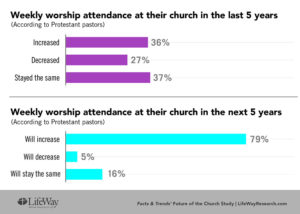 The survey found 79 percent of pastors say weekly worship attendance at their church will increase in the next five years. But looking at the last five years, only 36 percent of pastors say worship attendance growth increased, while two-thirds say attendance stayed the same or declined (27 percent decreased, 37 percent stayed the same).
The survey found 79 percent of pastors say weekly worship attendance at their church will increase in the next five years. But looking at the last five years, only 36 percent of pastors say worship attendance growth increased, while two-thirds say attendance stayed the same or declined (27 percent decreased, 37 percent stayed the same). The Future of the Church survey asked pastors if attendance by 18- to 29-year-olds in the past five years increased, decreased or stayed the same at their church. Almost a third (32 percent) say attendance of young adults increased, while 29 percent say attendance decreased and 39 percent say it stayed the same.
The Future of the Church survey asked pastors if attendance by 18- to 29-year-olds in the past five years increased, decreased or stayed the same at their church. Almost a third (32 percent) say attendance of young adults increased, while 29 percent say attendance decreased and 39 percent say it stayed the same. A third of pastors told LifeWay Research the ethnic diversity of worship attendees at their church grew the last five years. Sixty-two percent say it stayed the same and 4 percent say ethnic diversity decreased. Looking toward the next five years, a majority of pastors (62 percent) say the ethnic diversity of worship attendees will increase.
A third of pastors told LifeWay Research the ethnic diversity of worship attendees at their church grew the last five years. Sixty-two percent say it stayed the same and 4 percent say ethnic diversity decreased. Looking toward the next five years, a majority of pastors (62 percent) say the ethnic diversity of worship attendees will increase.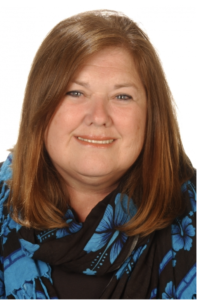

 Today, 39 percent say they consider themselves a devout Christian with a strong faith in God, while 27 percent still consider themselves Christian but not particularly devout. Fewer say they believe in God but are uncertain of Christianity (14 percent) or say they consider themselves spiritual, but not religious (11 percent).
Today, 39 percent say they consider themselves a devout Christian with a strong faith in God, while 27 percent still consider themselves Christian but not particularly devout. Fewer say they believe in God but are uncertain of Christianity (14 percent) or say they consider themselves spiritual, but not religious (11 percent). Those who stopped attending church for at least a year are more likely to say they believe in God, but are uncertain about Christianity (17 to 8 percent); say they consider themselves spiritual, but not religious (13 to 5 percent); say they’re uncertain about their belief in God (7 to 3 percent); and say they don’t believe in God (6 to 1 percent).
Those who stopped attending church for at least a year are more likely to say they believe in God, but are uncertain about Christianity (17 to 8 percent); say they consider themselves spiritual, but not religious (13 to 5 percent); say they’re uncertain about their belief in God (7 to 3 percent); and say they don’t believe in God (6 to 1 percent).
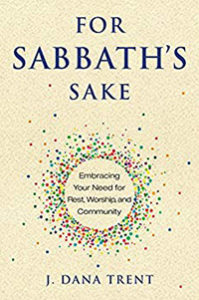 Now some are urging their fellow Christians to rediscover the practice of honoring the Sabbath.
Now some are urging their fellow Christians to rediscover the practice of honoring the Sabbath.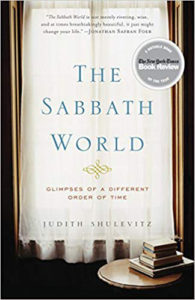 It’s not just a day of rest for individuals, she said. Instead, she said that it’s meant to be a “day of rest which is synchronized with the rest of society.”
It’s not just a day of rest for individuals, she said. Instead, she said that it’s meant to be a “day of rest which is synchronized with the rest of society.”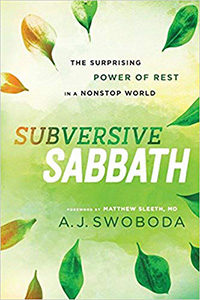 Swoboda’s book, Subversive Sabbath: The Surprising Power of Rest in a Nonstop World, recently was recognized in Christianity Today’s 2019 Book Awards. Taking a Sabbath reminds people that there’s more to life than being busy and plugged in all the time, according to the pastor.
Swoboda’s book, Subversive Sabbath: The Surprising Power of Rest in a Nonstop World, recently was recognized in Christianity Today’s 2019 Book Awards. Taking a Sabbath reminds people that there’s more to life than being busy and plugged in all the time, according to the pastor.
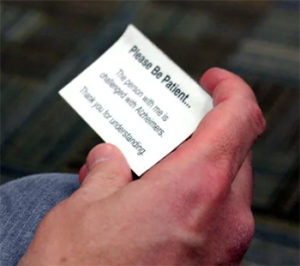


 In his book, Second Forgetting: Remembering the Power of the Gospel During Alzheimer’s Disease, Mast describes a man who may not always remember his grown children’s names but “quickly joins in” when someone reads one of his favorite psalms.
In his book, Second Forgetting: Remembering the Power of the Gospel During Alzheimer’s Disease, Mast describes a man who may not always remember his grown children’s names but “quickly joins in” when someone reads one of his favorite psalms.